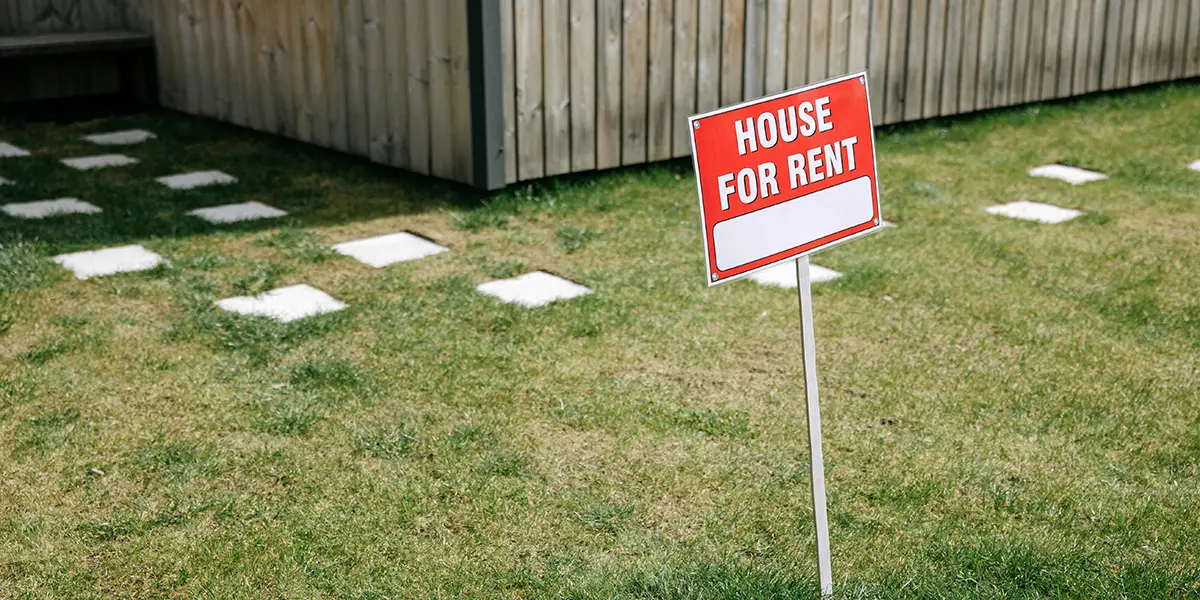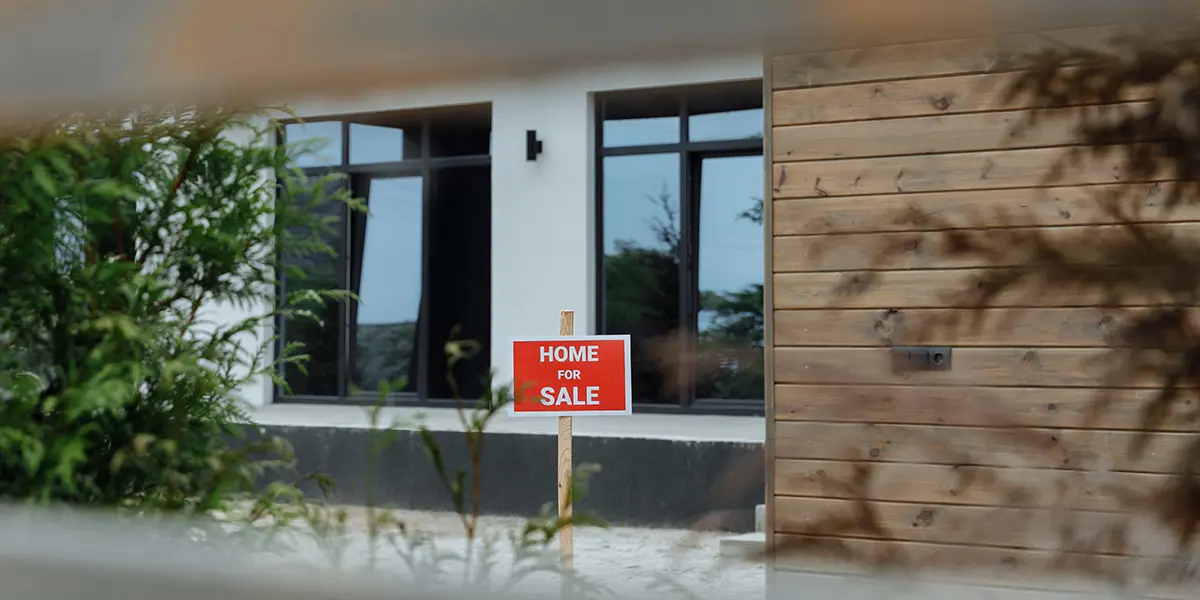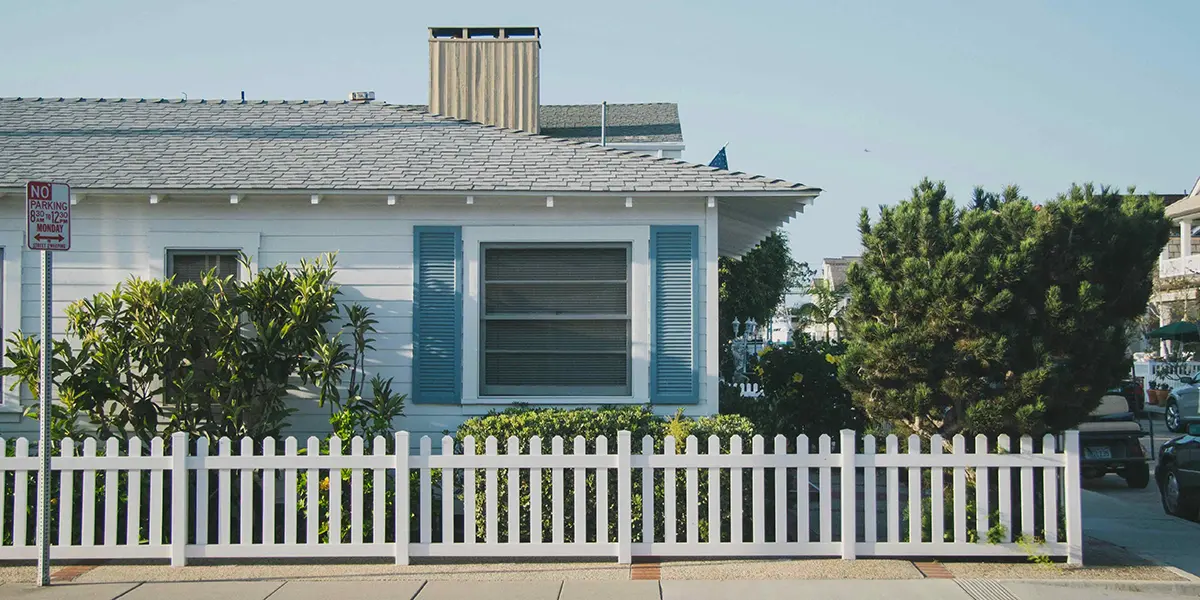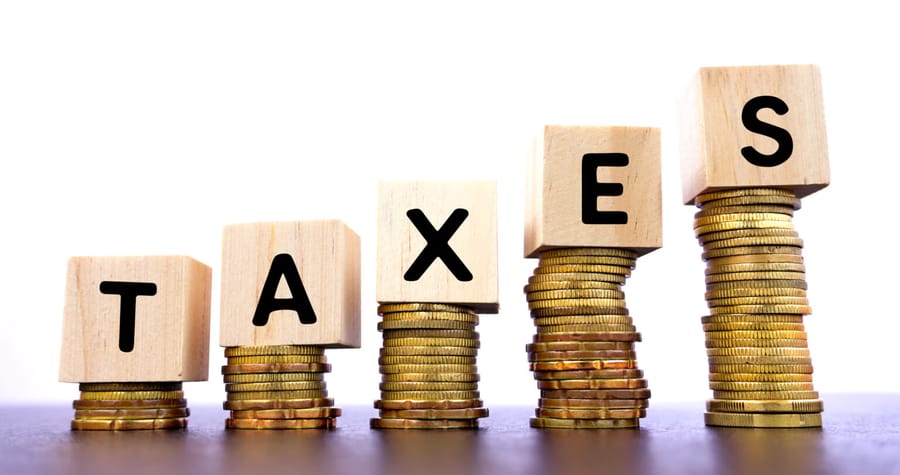Choosing between renting vs buying a home is one of the major money decisions in your life. It affects your lifestyle, money stability, and future ambitions. Imagine renting a home in New York City for $3,500 per month — over five years, that’s $210,000 spent on rent with no return. On the other hand, buying a similar home with a mortgage may require a $100,000 down payment and monthly mortgage payments of $4,500. Over the same period, that’s $370,000, but part of that builds equity in your property. The sums are big, so it's crucial to choose wisely when the moment is right.
To help you decide, we’ll explore the advantages and drawbacks of each option, with insights tailored to Cyprus, the U.S., and the U.K.
Understanding Renting VS Buying

Renting vs buying a house varies significantly by country and individual circumstances. According to recent statistics from the U.S. Census Bureau, 65% of U.S. households own their homes, while in the U.K., data from the Office for National Statistics (ONS) shows homeownership at 63%. In Cyprus, the Cyprus Statistical Service reports that 73% of residents own their homes. To better understand where and why people buy on the island, especially in booming cities, take a look at our guide on Buying Property in Limassol Made Simple for Foreigners. However, urban areas in all three countries tend to have a larger proportion of renters due to increasing property prices and lifestyle choices.
Let's compare the approximate processes by their main points and see which requires more time, effort, and preparation.
Renting a Home
Renting is a common choice for individuals seeking mobility and reduced upfront investments. The process typically involves:
- Searching for a rental property — Listings are available through online platforms, classified ads, or real estate agent near me services. For example, in Cyprus, Anisad is a competent realtor and the #1 online platform to find property in different locations.
- Applying for the rental — Tenants must provide earnings proof, professional references, and sometimes a credit report. In New York, landlords typically require renters to make a minimum of 40 times the cost of rent each month.
- Signing a lease — Standard lease terms range from six months to a year, with some offering month-to-month agreements. In Cyprus, leases generally start at one year.
- Paying initial costs — This usually includes a security deposit (one to three months' rent) and the first month’s rent. In high-demand areas like London, renters may also need to pay additional fees.
- Moving in and maintaining tenancy — Renters must adhere to lease terms, including timely payments and property upkeep.

Conclusion: Renting a home involves a relatively simple and fast process compared to buying. The paperwork usually takes a few days to a few weeks, depending on background checks and negotiations. It is an ideal option for those who value flexibility, have short-term housing needs, or want to avoid large upfront costs and maintenance responsibilities.
Buying a Home
Purchasing a property is a major financial step that offers long-term benefits. The process typically includes:
- Securing financing — Most buyers obtain a mortgage, requiring credit approval and proof of income. In the U.S., a standard mortgage term is 30 years, while in the U.K., it’s typically 25 years.
- Saving for a down payment — Usually 5–20% of the property's value. In Cyprus, foreign buyers often need at least 30%.
- Finding a property — Buyers work with real estate agents near me to locate a suitable home. In competitive markets like New York, acting quickly is crucial.
- Making an offer — Buyers negotiate a price and sign a purchase agreement. In the U.K., this involves making an offer through an estate agent and engaging a solicitor.
- Closing the deal — Includes home inspections, legal checks, and paying closing costs, which range from 2–5% of the home price.
- Moving in and maintaining the home — Owners manage fixes, land taxes, and home loan payments.
Conclusion: Buying a home offers financial security and the chance for real estate value improvement. In Cyprus, property taxes are significantly lower compared to the U.S. and the U.K. For example, property tax rates in Cyprus are minimal, with the highest rate being just 0.6%, whereas property taxes in the U.S. and the U.K. can range from 1% to 3% or more, depending on the location. This makes Cyprus an especially appealing choice for buyers looking for a more affordable long-term investment. It’s no surprise that many international investors are also considering smart investment options across the island.

Pros and Cons of Renting
Next, let's try to break down the renting vs buying pros and cons, starting with the most accessible option at first glance — renting. According to recent global statistics, countries like Germany, Switzerland, and the Netherlands have a higher proportion of renters compared to homeowners. In Germany, for example, around 50% of households rent, while in Switzerland, the figure is even higher, reaching nearly 60%.
Renting is also popular in seaside areas like Cyprus, where many people choose to rent properties near the coast for long-term stays or vacations. Renting is especially appealing in countries where property prices are high or the housing market is highly competitive. Let’s take a look at the perks and pitfalls of renting.
Key Benefits of Renting
At first glance, renting is always cheaper, and that's the main advantage. But there are other benefits as well:
- Flexibility: Renting is ideal for those who need to move frequently for a job or personal situations. An employee working in multiple cities for short-term contracts may prefer renting, as it allows them to relocate easily without the hassle of selling a home.
- Lower Upfront Costs: People who rent typically don’t need a significant initial deposit. The person renting a $1,200/month apartment might only need to pay a security deposit and the first month's rent, compared to the significant costs associated with buying a home.
- No Maintenance Costs: The landlord handles repairs and property upkeep, meaning renters don't have to pay for repairs like plumbing issues or roof repairs.
- Access to Prime Locations: Renting often allows you to live in desirable central locations without the hefty price tag of homeownership. To compare options, you can browse affordable apartments for rent in central Limassol based on your budget. For example, renting an apartment in a city center in countries like the U.K. or the U.S. may be more affordable than owning property in the same area.
Drawbacks of Renting

There are many cases where renting is not suitable due to the following reasons:
- Lack of Equity Building: Monthly rent payments do not contribute to property ownership. Unlike homeowners, renters don't build equity over time, and their rent payments go straight to the landlord rather than towards building a personal asset.
- Potential Rent Increases: Landlords can raise rent at the end of a lease term. For example, renters in cities like New York or London may face rent hikes as demand for rental properties increases, making it harder to maintain the same living conditions.
- Limited Personalization: Renters are often restricted in modifications to the home, like redecorating the rooms or updating the bathroom.
- No Tax Benefits: Renters miss out on the tax advantages that property owners receive, such as mortgage interest deductions.
Should I Rent? Renting is perfect for anyone who loves the freedom to pick up and go, without the hassle of dealing with home repairs or massive upfront costs. But if you’re the type who wants to paint the walls, build equity, or avoid the possibility of rent hikes, renting might not be your dream match.
Pros and Cons of Buying
Around 65% of Americans own their homes, and the numbers are similar in Canada, where owning a property is seen as an investment in the future. But, is it the right choice for you? Let’s dive into the benefits and challenges of buying.
Benefits of Buying
If you’re wondering why people choose buying vs renting, here’s why:
- Wealth Building: Property values generally increase over time. For example, if you bought a house for $250,000 ten years ago, it could now be worth $350,000, giving you $100,000 in potential profit.
- Stability and Security: Say goodbye to sudden rent hikes or lease renewals. Once you own your home, it’s yours, and you can stay as long as you want.
- Personalization: You can make your home truly yours! Want to knock down a wall or paint the whole place purple? It’s all up to you.
- Tax Incentives: In countries like the U.S., property owners can subtract loan interest and real estate taxes from their taxable income, making homeownership even more financially attractive.
Challenges of Buying

The biggest challenge of buying? The hefty price tag that you have to cover all at once. But that's not the only hurdle:
- High Initial Costs: The down payment, closing costs, and other expenses can be huge. A 20% down payment on a $300,000 home is $60,000 — plus the costs of inspections and insurance.
- Maintenance Responsibility: From fixing leaks to replacing appliances, homeowners are on the hook for repairs, which can get costly.
- Market Risks: Property values aren’t guaranteed to rise. A home bought during a market boom might lose value during a downturn.
- Less Flexibility: Selling a home takes time, so if you need to relocate quickly, it can be a challenge.
Should I Buy? Buying is a great move if you’re ready to settle down, build equity, and enjoy the freedom to customize your space. It’s perfect if you’re in it for the long haul and want to invest in your future. But if you’re not ready to commit to a big upfront cost or the never-ending list of home repairs, maybe renting is a better fit for now.
Financial Considerations
When deciding between renting vs buying a property, it's essential to evaluate short-term and future financial consequences. Key factors to consider include monthly expenses, upfront costs, investment potential, and prevailing market conditions. Here's a detailed analysis to steer your choice.

Cost Comparison
Before comparing costs, consider the following factors:
- Initial Expenses: Renting usually means a smaller upfront commitment with just a security deposit and the first month’s rent, while buying can feel like a huge leap with a hefty down payment, closing fees, and a bundle of extra costs.
- Monthly Payments: Renters pay a fixed monthly rent, whereas homeowners have mortgage payments that can vary based on interest rates and loan terms.
- Additional Expenses: Homeowners are responsible for property taxes, maintenance, and insurance, whereas renters may have fewer responsibilities.
Here's a simplified comparison of renting and buying costs in New York City, London, and Cyprus:
| Location | Renting (Monthly) | Buying (Monthly) | Upfront Costs |
| New York | $3,500 (1-Bed in NYC) | $4,500 (Mortgage + Taxes) | 1-2 months' rent or 20% down payment |
| London | £2,200 (2-Bed) | £2,500–£3,000 (Mortgage) | 1-2 months' rent or 20% down payment |
| Cyprus | €1,500 (2-Bed in Limassol) | €1,800 (Mortgage Payment) | 1-2 months' rent or 20% down payment |
How to make the calculations easier? You can use a buy vs rent calculator or work with realtor agents near me who will provide a market overview and calculate everything.
Market Conditions
Market conditions are a big factor in deciding whether to rent or buy a property. These are things that can change based on the economy and housing market.
- Interest Rates: When borrowing costs are high, purchasing a property costs more because mortgages are more expensive. For example, in the U.S., mortgage rates have been around 6-7% recently. If the rate goes up, it may make more sense to rent instead of buying since renting avoids extra costs like mortgage payments.
- Supply and Demand: When there are fewer homes for sale, the prices go up. This is called a "seller's market," and it can make buying a home harder and more expensive. If there are lots of homes for sale and fewer buyers, it’s a "buyer’s market," and prices may go down, making buying more attractive.
- Government Policies: Sometimes, governments offer incentives for buying homes, like tax breaks or subsidies. In Cyprus, the government offers incentives like tax breaks and reduced VAT rates for first-time homebuyers. These benefits make homeownership more affordable, especially in areas like Limassol, where rental prices can be high.
Investment Potential

Buying a home can be a good investment because real estate usually increases in value over time.
- Property Value Growth: Homes typically get more expensive as time goes on. In the U.S., home prices increased by about 3.8% in the past year. This means that buying a home now could help you make money in the future when you sell it for more than you paid.
- Rental Income: If you acquire a property and lease it to tenants, you can make money from rent. In places like Cyprus, properties in tourist areas can bring in a lot of rental income, with annual returns of 5-8%. To find homes near the beach or in tourist hotspots, explore affordable vacation rentals in Cyprus available for sale on the island. So, if you’re looking to make some extra cash, buying a property to rent out can be a smart move.
These insights highlight the dynamic nature of real estate markets and the importance of staying informed about current trends when making your decision.
Personal Factors to Consider
When deciding between renting and buying, personal factors play a critical role. Your lifestyle, career aspirations, family needs, and long-term goals all influence which option may be best for you. By considering these elements, you can better align your housing choice with your plans. Here’s how these personal aspects can shape your decision.
Lifestyle and Mobility
If you're planning to stay in one place for at least 5–7 years, buying a home often makes more sense. It provides stability and an opportunity to build equity. On the other hand, if you expect frequent moves, whether for work or personal reasons, renting offers flexibility and less commitment.
Long-Term Plans
Long-term plans significantly impact the renting vs buying decision. Here’s why:
- Retirement: Buying a home allows you to eliminate mortgage payments by retirement, which can help reduce financial stress. Owning property can be a long-term asset that provides security during your later years.
- Career Growth: If your job requires you to move regularly, buying may not be practical. Renting gives you the flexibility to relocate with ease, without the complications of selling a home.
- Family Needs: As your family grows, your housing needs will evolve. Buying a home gives you the chance to secure more space and customize it for your family’s needs. Renting, however, might not offer that kind of flexibility.

Ultimately, deciding whether to rent or buy should be based on your circumstances. If you’re ready to settle down for the long term, buying might be the right choice. But if flexibility, career changes, or family needs are a priority, renting could be a better fit.
Tools to Aid Your Decision
When deciding to rent or buy a property, using the right tools can make the decision-making process much easier. A rent vs buy calculator, for example, can help you compare the costs of both options based on your specific situation. Here's a closer look at the tools available to help you make the best decision:
Rent vs Buy Calculators
These calculators allow you to compare the financial implications of renting versus buying based on your location, income, and property details. To get accurate comparisons, you’ll need to input data like your home price, rent cost, expected mortgage rate, property taxes, and how long you plan to stay.
- New York Times Rent vs Buy Calculator — This tool is designed for U.S. buyers. It helps you calculate the long-term costs of buying a home versus renting one based on various factors like expected home price, mortgage rate, and how long you plan to live there.
- Bank of England Mortgage Calculator — Ideal for U.K. buyers, this tool helps you estimate mortgage payments based on your home price and mortgage rate.
- Cyprus Property Portal Calculator — This tool offers insights specifically tailored to the Cypriot market, helping you compare renting versus buying in Cyprus.
Consulting Real Estate Agents

In addition to using a calculator, consulting with a real estate agent can help you get insights into the local market, property availability, and other key factors. A good real estate agent will help you locate the ideal home and support you throughout the decision-making journey.
To find the best agent, you can:
- Check client reviews and testimonials.
- Look for licensed agents with experience in your area.
- Ask about their expertise in negotiation and closing deals.
- Use online directories to find the best real estate agent near me.
By using these tools and consulting with experts, you can make an informed decision about whether renting or buying is the best financial choice for you.
Make the Right Choice for You
Choosing between leasing or purchasing a property relies on your unique situation, finances, and long-term goals. To make a well-informed decision, start by using a rent vs buy calculator to compare the costs of each option. These tools provide a comprehensive breakdown of the monetary effects of renting compared to purchasing. Additionally, consulting a real estate agent for valuable insights into the local market, helps you understand property availability and trends.
Consider your long-term goals and lifestyle needs — whether you value the flexibility that renting provides or if you're looking for the stability and investment opportunities that come with buying. And if you're leaning toward buying, browse property listings across Cyprus to find apartments that suit your budget and lifestyle goals.






